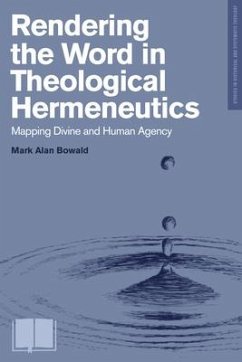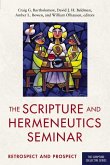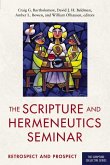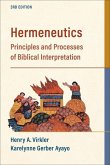When interpreting Scripture, do we take an academic or a spiritual approach? Do we emphasize the human or the divine agency? Do we focus on man's authorship or God's inspiration? Mark Bowald argues that these are false dichotomies. We need to understand both the human qualities of Scripture and the divine, as an overemphasis on either will lead to distortions. In Rendering the Word in Theological Hermeneutics, Bowald surveys various schools of thought, explaining where they lose the balance between the two. He analyzes the hermeneutical methods of George Lindbeck, Hans Frei, Kevin Vanhoozer, Francis Watson, Stephen Fowl, David Kelsey, Werner Jeanrond, Karl Barth, James K. A. Smith, and Nicholas Wolterstorff. Bowald shows that we should view Scripture as equally human and divine in origin and character. And our reading of Scripture should involve both critical rigor and openness to the leading of God's Spirit.
Hinweis: Dieser Artikel kann nur an eine deutsche Lieferadresse ausgeliefert werden.
Hinweis: Dieser Artikel kann nur an eine deutsche Lieferadresse ausgeliefert werden.








